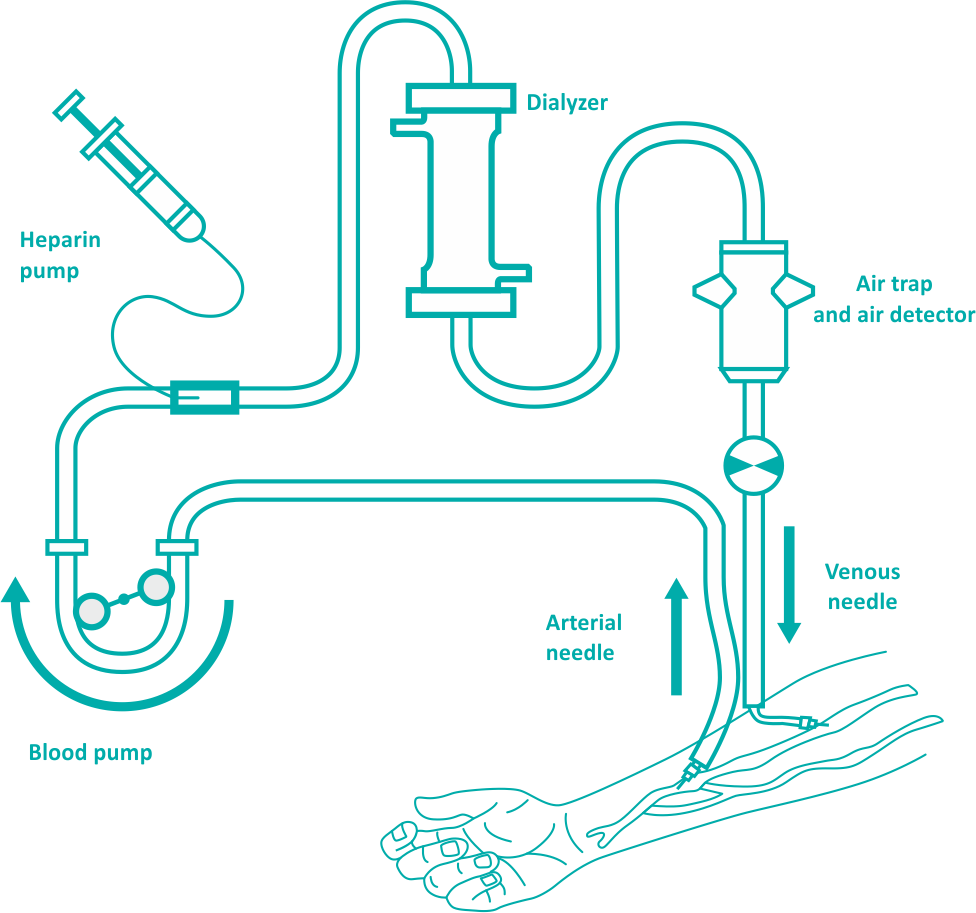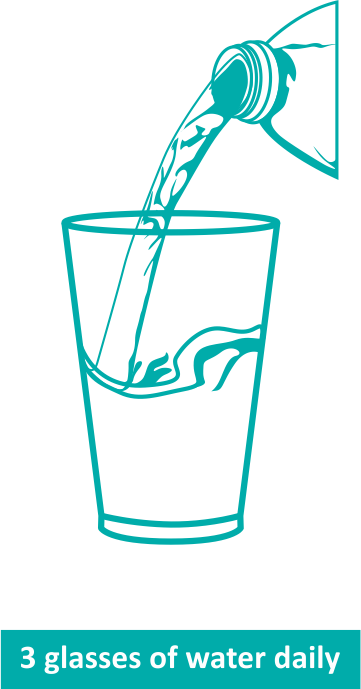What is hemodialysis?
It is a procedure created to replace the functions of the kidney, cleaning the blood and removing waste through a filter that is divided in two. As the blood passes through one part of the filter, in the other part a special liquid removes the waste from the blood. After the process, the blood returns clean to the body.
People who receive hemodialysis should have a special lifestyle to obtain better results and improve the quality of life.
Food
- Patients with kidney disease must have a balanced diet.
- An inappropriate diet can increase the risk of complications in hemodialysis such as problems with cramps, dizziness, general unrest, low or high blood pressure, among others
.
Diet should be low in potassium and sodium
- Soak legumes from the previous day.
- Boil vegetables twice, removing water used each time to eliminate part of the potassium and minerals.
- Reduce the consumption of nuts, tomatoes, and cocoa.
- Avoid sodium intake. Cook your food without salt.
- Stop alcohol consumption.
- Reduce the intake of animal fats and saturated fats. The best alternative is olive oil.
Fluid intake
It is very important to control your fluid intake daily to avoid excessive retention.
- Restrict the intake of sodium (salt) and fluids to prevent too much fluid buildup in your body from one treatment to the next.
- Not eliminating sodium from the body due to kidney failure, leads to fluid retention and swelling of the body, increasing the heart´s workload which can lead to heart failure.
- To avoid fluid buildup from one treatment to the next, your daily diet should not include more than 2 grams of sodium or 5 grams of salt.
In general, the recommended daily fluid intake for hemodialysis patients is approximately 3 glasses (800 ml).
Ask your doctor how much liquid you can drink.
General recommendations
- Do moderate-intensity exercise.
- If you travel, it is important to plan your trip reserving dialysis sessions in hospitals or dialysis centers at the destination cities.
- Carefully comply with the prescribed treatments (doses and schedules) and do not make any changes without asking your doctor first.
- Once you are used to the treatment, you will feel much better. In fact, you may be in a better mood to do the activities you used to enjoy before the disease.
- Talk to your doctor about the medicines to treat anemia and keep your bones healthy, so you will feel stronger and less tired.
- Get back to your life. Dialysis should only be a means to feel better and do the things you want to do in your life.




